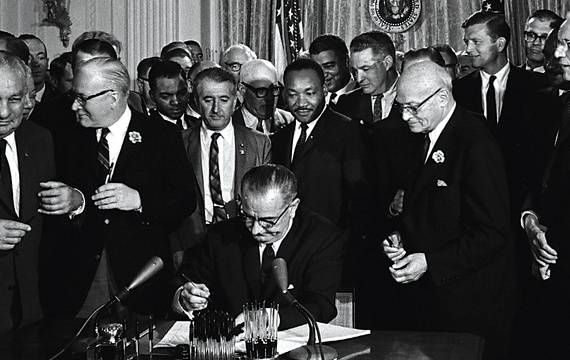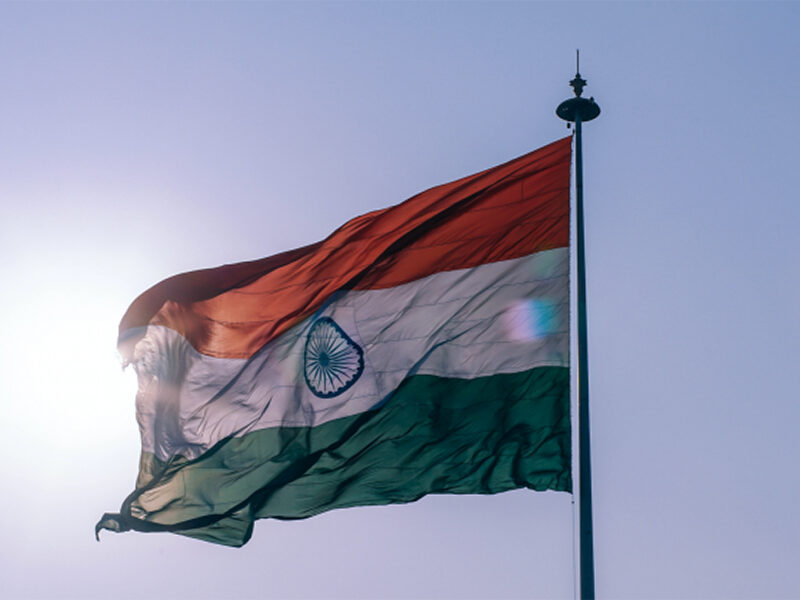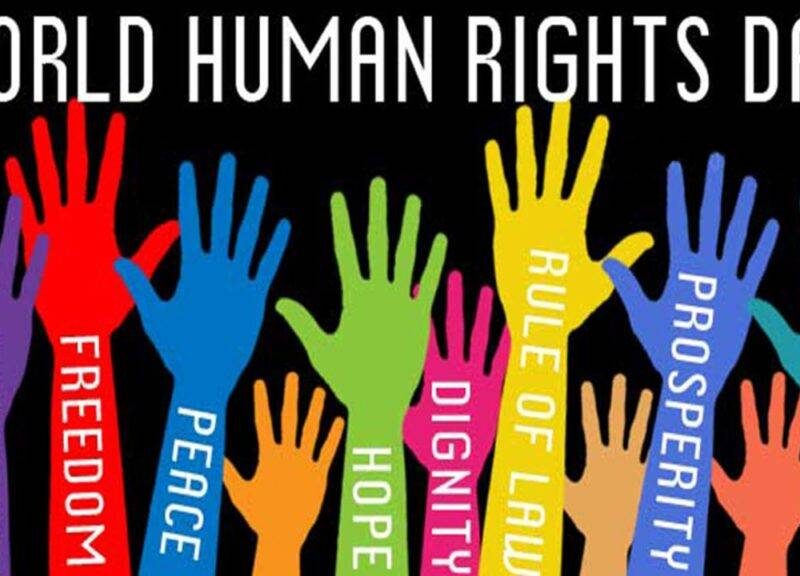
Today marks the 50th anniversary of the signing of the Civil Rights Act, which would become one of the most significant pieces of legislation in American history.
The law would enshrine equality of access for African-Americans and other minorities while effectively ending Jim Crow laws that had been used to keep blacks from participating in the public sphere. And though it would take nearly another decade before the law was fully recognized in every part of the country (some areas still fiercely resisted its implementation), its impact has been felt in every sector of American life.
The Hindu American Foundation has benefited in many ways from the passage of the Act, and of the sacrifices of those like the Freedom Riders, who experienced physical harm in an effort to ensure equality for all Americans. Heroes such as Rep. John Lewis, who was nearly beaten to death for his role in organizing the Freedom Rides, have embodied the concepts of seva and ahimsa as means for facilitating social change. His willingness to give up his body for a greater cause ensured that all Americans would benefit from equality.
The Civil Rights Act would lead to the repeal of the Asian Exclusion Act a year later, allowing for the immigration of Hindus from the Indian subcontinent and regions such as the West Indies and Southeast Asia. That first wave of immigrants who came to the United States would become those who set up the first Hindu institutions, including temples and cultural centers, without systemic barriers such as racial exclusion laws preventing them from doing so.
HAF was founded by the American-born children of that first wave of immigrants, which is why Hindu Americans and other groups are indebted to the heroes of the Civil Rights movement. At a time when racism was vitriolic and when civil rights leaders faced significant opposition, there were many reasons to be hesitant. Instead, the Freedom Riders and other heroes of different colors and faiths pushed forward, and their efforts were rewarded with President Lyndon B. Johnson’s signing of the act.
While we are forever grateful for the passage of the act, our work as Americans is far from over, especially at a time when citizenship, voting rights, and other basic measures of equality have come under attack in some states and in the courts. Perhaps we can use the legacy of the Freedom Summer to push for the full implementation of the change we wish to see. By doing so, we would be giving the ultimate tribute to those who sacrificed so much for the betterment of all.








































